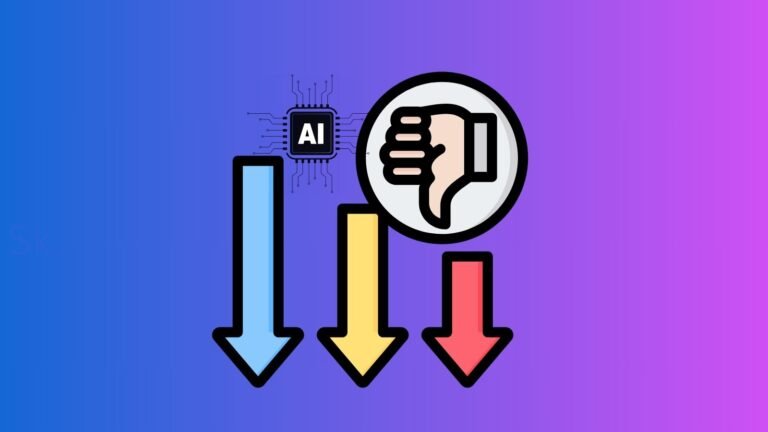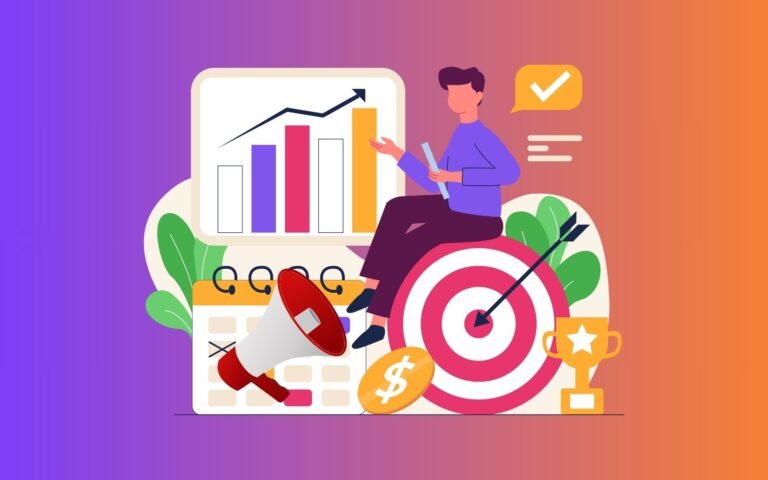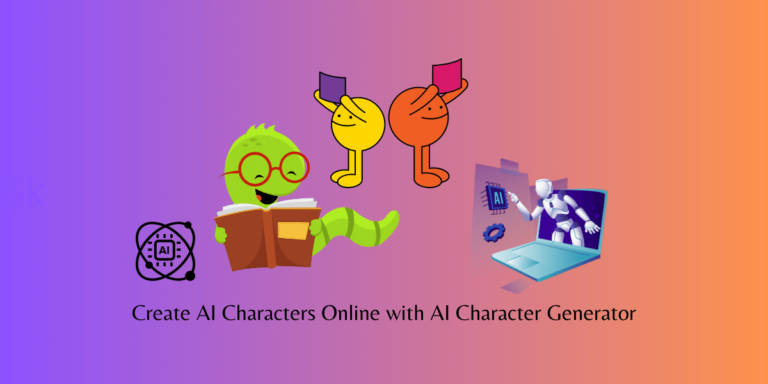What Can AI Do for My Business? Discover the Benefits of AI

What can AI do for my business? AI is transforming industries and companies that don’t get on board will get left behind.
This post will show you how AI can transform your business by improving operations and creating new revenue streams. How can AI help your business and give you an edge in today’s digital world.
Key Takeaway – What Can AI Do for My Business
- AI enhances customer service with 24/7 chatbots and personalized interactions.
- AI-driven data analysis and predictive analytics optimize marketing and sales strategies.
- AI automates repetitive tasks, improving operational efficiency and productivity.
- Affordable AI tools enable small businesses to leverage AI for competitive advantages.
AI for Customer Service and Experience

24/7 Support with Chatbots and Virtual Assistants
Get better customer service with AI driven chatbots and virtual assistants that provide 24/7 support. These intelligent systems use natural language processing to understand customer queries and respond accurately, seamless experience.
AI powered customer service automation frees up staff for complex issues, efficiency and satisfaction in the new era of business and marketing. (How Business and Marketing Are Changing with AI: A New Era)
NLP for Understanding Customer Inquiries
Natural language processing (NLP) is changing customer service. NLP algorithms can understand and respond to customer queries in a way that feels human and natural, clear communication and understanding.
By using NLP businesses can address customer concerns, streamline support processes and identify customer trends through data analysis.
Analyzing Customer Data for Trends and Preferences
Get customer insights by using AI to analyse customer data from multiple sources, feedback, purchase history and online behaviour.
AI can identify customer trends and preferences so businesses can tailor their offerings, engage with customers and deliver a better customer experience.
Personalized Interactions and Recommendations
AI allows businesses to provide highly personalized interactions and recommendations.
AI can suggest products, services, or content relevant to individual preferences and needs by analyzing customer data and behavior.
This level of personalization improves customer experience, loyalty, and revenue growth.
AI for Marketing and Sales

Data Analysis and Insights for Targeted Campaigns
Using AI to get unprecedented customer insights by analyzing data from multiple sources. Algorithms can process huge amounts of structured and unstructured data and identify patterns, trends, and customer preferences that humans might miss.
With these insights, marketing teams can create highly targeted and personalized marketing campaigns and get better results. AI-driven data analysis helps businesses see customer trends and customize their offerings to match.
Generative AI for Personalized Content and Ads
Generative AI is changing content and advertising. These AI systems can create highly engaging and personalized content, product descriptions, marketing materials, and ad copy.
By knowing individual customer preferences and behavior patterns, generative AI creates content that speaks to each customer, engagement, and conversion.
AI works; check out real-world success stories of businesses leveraging this technology.
Predictive Analytics for Forecasting Behaviors and Trends
AI-powered predictive analytics can help businesses forecast future customer behavior and market trends. By analyzing historical data, AI can identify patterns and predict customer preferences, buying habits, and emerging trends.
This insight allows businesses to get ahead of the curve, adapt their strategy, and make informed decisions to meet changing customer needs. Predictive analytics gives businesses an edge by allowing them to respond to market shifts proactively.
AI for Operations and Productivity

Automating Repetitive Tasks
Improve efficiency and productivity by using AI automation tools to do mundane tasks. AI systems can simplify tasks like data entry, report generation, and invoice processing so your team can focus on strategic and creative work.
Automating these tasks also reduces human error and overall operational efficiency.
RPA for Streamlining Workflows
Robotic Process Automation (RPA) is a game-changing technology that can improve your business workflow. RPA bots mimic human actions and interact with a business application and software, automating processes across multiple systems from start to finish.
RPA integrates with your existing infrastructure so you can automate tasks and workflows and get big time and cost savings.
Generative AI for Content Creation and Documentation
Generative AI is changing content and documentation. These advanced AI systems can create high-quality content, reports, and documentation based on specific inputs and requirements.
Do you need marketing materials, technical documentation, or legal contracts? Generative AI can reduce time and effort while ensuring consistency and accuracy.
Data Entry and Processing Automation
Manual data entry and processing tasks are tedious and prone to error. Manual data entry and processing tasks are tedious and prone to error.
AI automation can remove these headaches by extracting and processing data from multiple sources, including unstructured data like scanned documents, PDFs, and images.
This makes data management easier and more accurate and frees up resources so your team can focus on more strategic work.
AI for Decision-Making and Risk Management

Predictive Analytics for Risk Assessment and Mitigation
AI-powered predictive analytics can improve risk management in organizations. By analyzing large amounts of data, including historical data, customer data, and market trends, AI can identify risks and offer insights to manage them.
While AI aids decision-making and risk management, businesses should know its limitations and risks. (Disadvantages of AI in Business: Risks You Should Know)
Analyzing Datasets for Better Business Decisions
Making business decisions requires analyzing complex and large datasets, which can be overwhelming for humans. AI systems are great at processing and analyzing data from multiple sources, uncovering patterns, correlations, and insights that would otherwise go unnoticed.
By using AI’s data analysis capabilities, business leaders can make decisions with data-driven insights, plan better, and be more competitive.
Identifying Patterns and Trends in Historical Data
Historical data contains valuable information that can guide future strategies and decisions. However, manually examining vast amounts of data to identify trends and patterns can be time-consuming and prone to errors.
AI algorithms can quickly and accurately analyze historical data from different areas like sales records, customer interactions, and employee records and uncover hidden patterns and trends that can lead to better decisions and processes.
AI for Small Businesses

Affordable AI Solutions and Tools
AI is no longer just for big companies. Small businesses can now use affordable AI solutions and tools designed for them. From AI powered chatbots for customer service to automation tools for daily tasks, many options can deliver big benefits at a low cost.
Small business owners can use these AI solutions to improve their processes and gain a competitive edge without spending much money.
AI Features in Business Apps and Software
Many common business apps and software are adding AI-powered features to do more. These AI tools can help with data analysis, customer engagement, and automation of repetitive tasks.
Small businesses can use these AI features in the existing software to benefit from AI without needing special skills or big changes.
Automation for Small Teams and Limited Resources
AI automation can make a big impact for small businesses with limited resources and small teams. By automating time-consuming tasks and manual processes, small teams can focus on more important activities that help the business grow and make money.
AI-powered automation tools can do things like data entry, generating reports, and repetitive work-related tasks, saving time and reducing the chance of human error.
Implementing AI in Your Business

Evaluating Needs and Identifying AI Solutions
Before you start with AI, think about what evaluates your business needs and identify AI solutions for your goals. Look at how your business works now, where it’s slow or stuck, and where AI can help.
Check out different AI tools and see which ones fit your needs, like automating tasks, gaining customer insights, or learning more about your customer data.
Building an AI-ready culture and Infrastructure
AI implementation requires more than just new technologies; it requires a company culture that is open to new ideas and ready for change. Encourage trying new things, always learning, and working together across teams.
Also, make sure your organization has what it needs to support AI systems, like effective data collection and management methods and people who know how to use and manage these advanced AI technologies.
Addressing AI Adoption Concerns and Challenges
While AI brings many benefits, adoption can also bring challenges. Deal with the issues upfront like data privacy and security, ethics and how it affects your workforce. Provide training and help employees understand and adapt to the new AI powered processes.
Work with legal teams to follow the rules and lessen the risks of using AI. Be careful with concerns about human mistakes or job changes by showing how AI can help and support people.
Future Trends and Opportunities with AI

Advancements & Potential Impact of AI Technologies
Artificial intelligence is changing fast, with continued improvements and discoveries. As AI technologies, it will have a big effect on many industries and how businesses work.
From making it easier for people to talk to machine learning to analyzing tricky data, AI has a lot of possibilities.
These modifications will help businesses work better, make smarter decisions, and give customers even better customer experiences.
Emerging Use Cases & Industries Embracing AI
AI has already impacted technology, finance and online shopping and now it’s being used in many other industries. Healthcare organisations are using AI for disease detection and drug discovery, legal teams for contract analysis and case research.
Also, manufacturing logistics and security teams are trying out AI to predict when machines need to be fixed, improve supply chains, and spot threats.
Role of AI in Shaping Business Futures
AI will play a significant role in the future of businesses. Early adoption of AI will provide a competitive advantage. It will change how companies do things, like doing tasks automatically routine tasks and making work better, talking to customer interactions, and using data to make smart choices.
Companies that don’t use AI risk falling behind in a world where AI is becoming increasingly important. Using AI isn’t just a choice anymore; it’s something businesses need to do to succeed in the future.
Summary
AI is changing how businesses work so you can make things easier, make customers happier, and grow.
Businesses can work better and stay ahead by using AI to automate tasks, learn about customers, use data to make decisions and develop new ideas.
Use AI that fits your needs; you’ll get more done, make customers feel special, and do well in a world where AI is important.
Frequently Asked Questions
What Are Some Common AI Applications for Businesses?
AI can be used for customer service, data analysis, marketing, automation, and decision-making.
Can AI Automate Repetitive Tasks in My Business?
Yes, AI can handle tasks like data entry, scheduling, and invoice processing, freeing up time for more important work.
How Can AI Help with Marketing and Advertising Efforts?
AI can personalize marketing campaigns, target the right audience, optimize ad spend, and analyze campaign performance.
Is AI Affordable for Small Businesses?
Yes, many affordable AI solutions are tailored for small businesses, with scalable options to grow with your needs.
What Are the Risks or Challenges of Implementing AI?
Challenges include data privacy concerns, the need for high-quality data, integration with existing systems, and potential job displacement.
How Can I Get Started with AI in My Business?
Start by identifying areas that could benefit from automation or data analysis, choose an AI solution that fits your needs, and consult with experts if needed.





